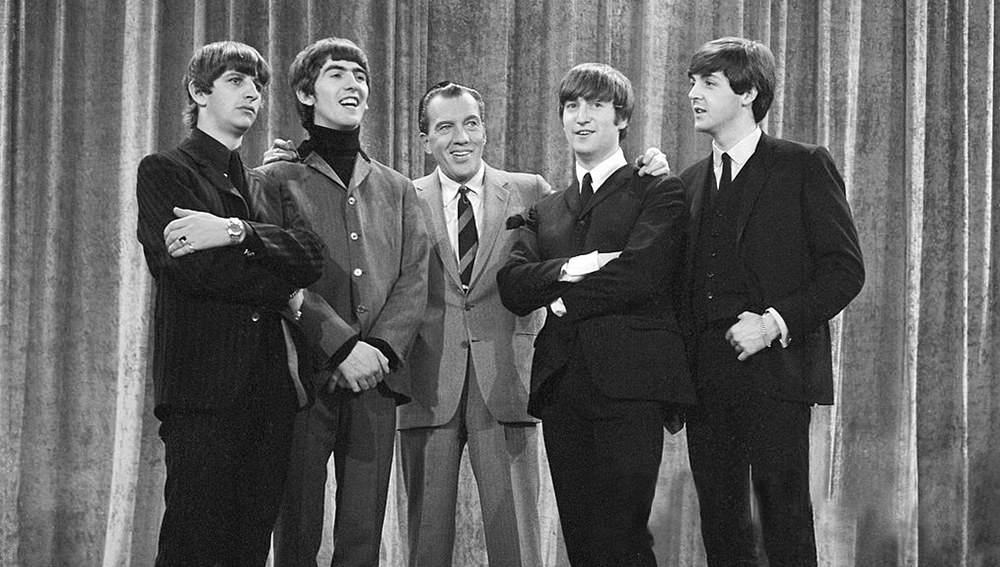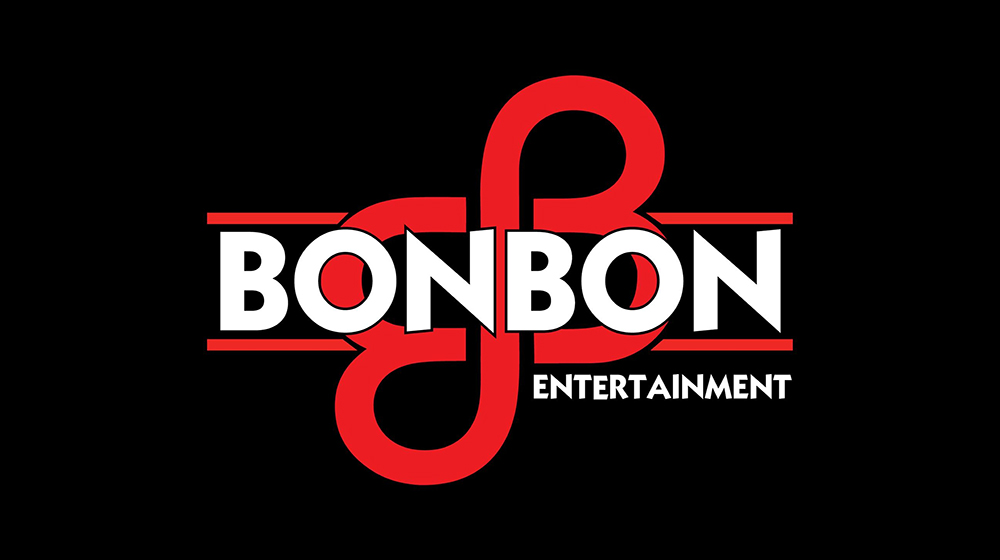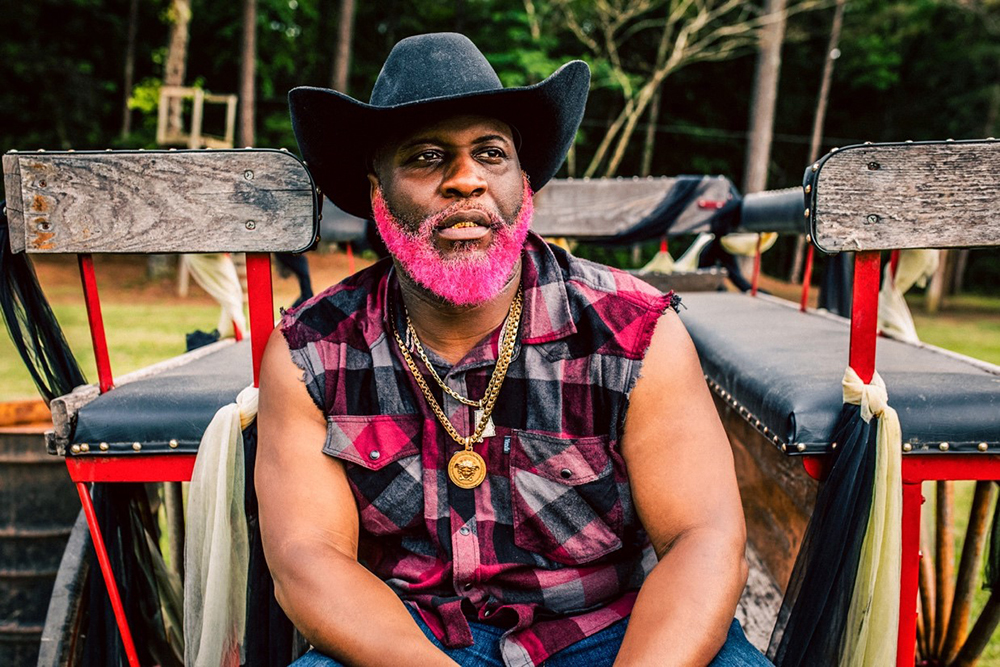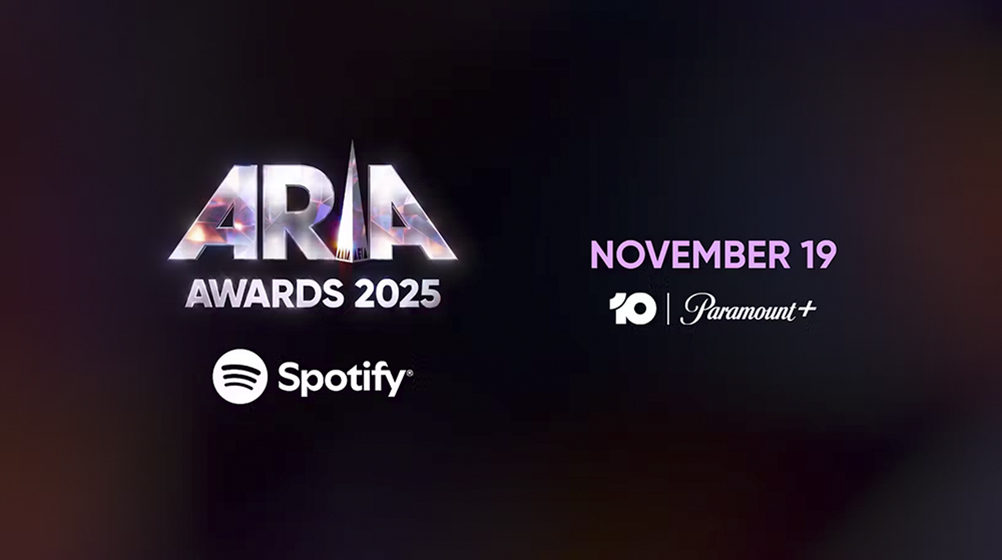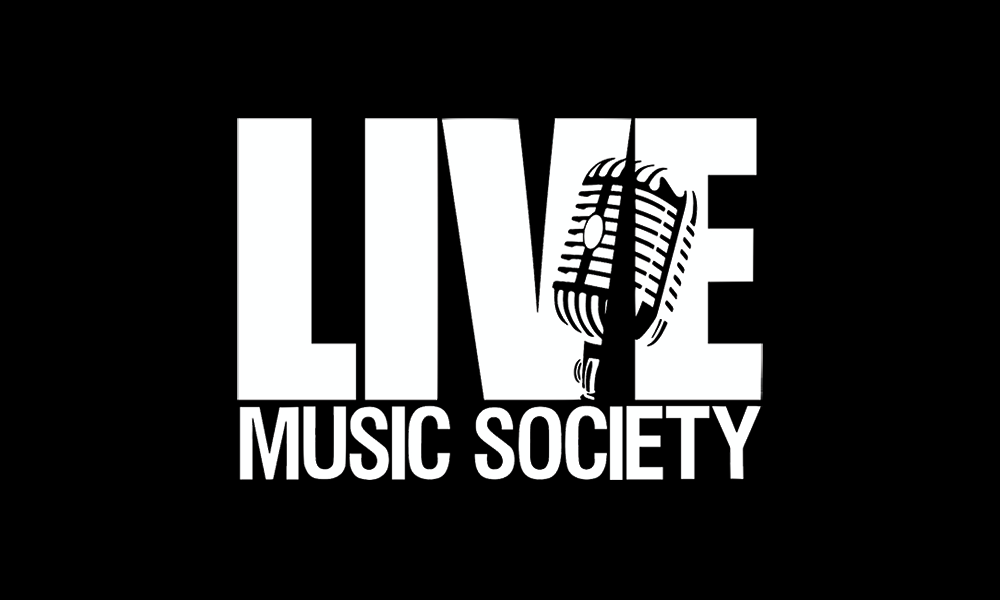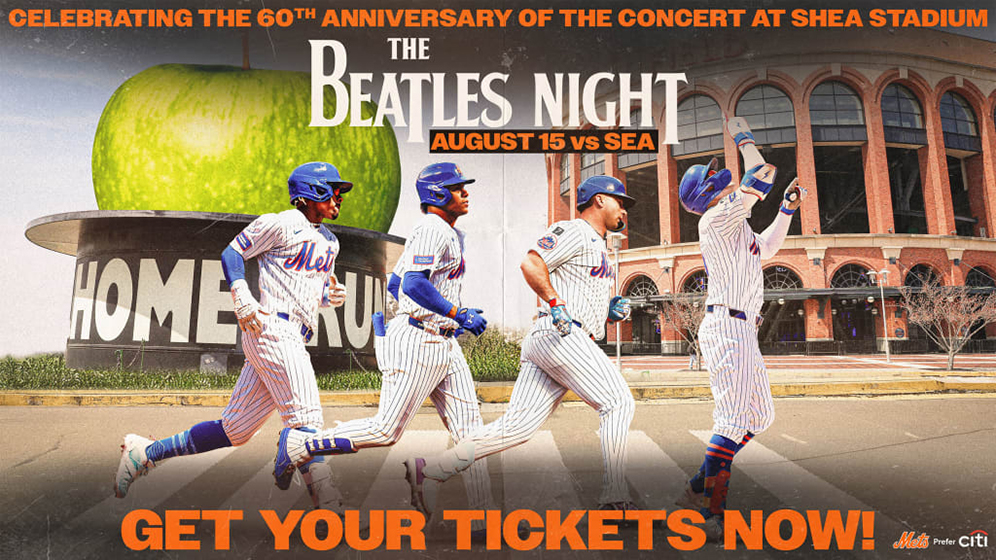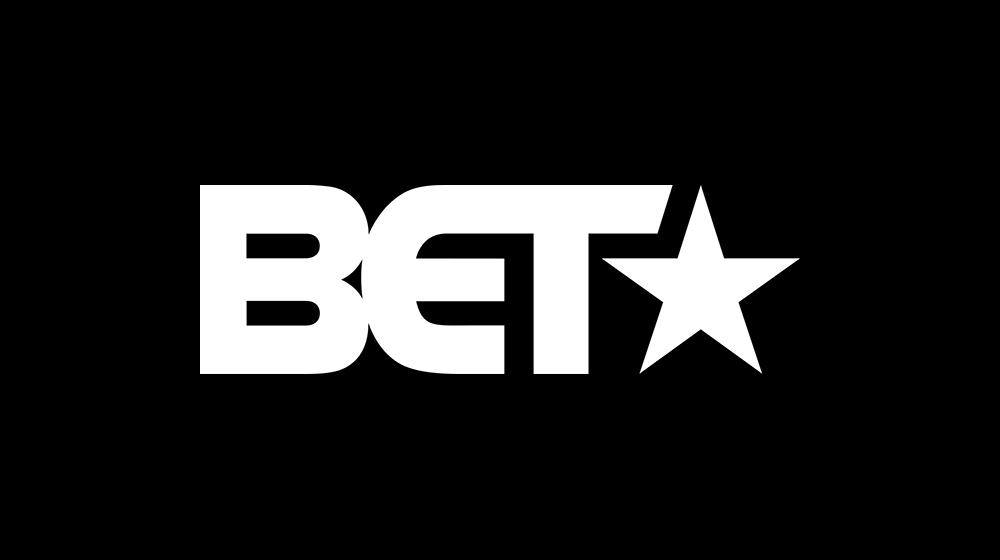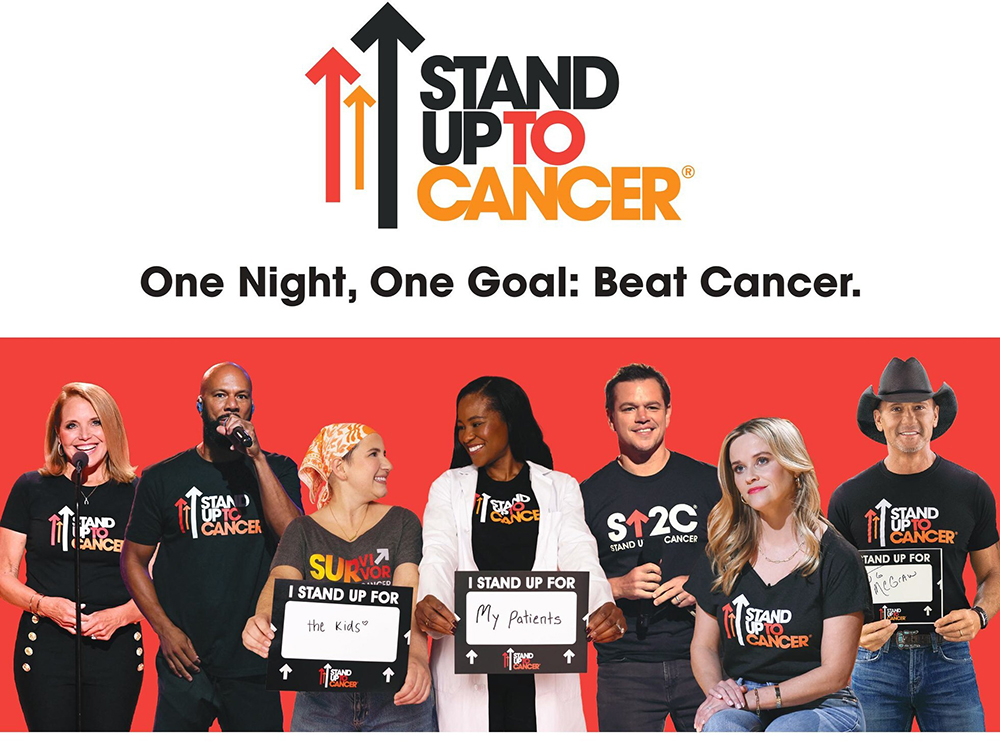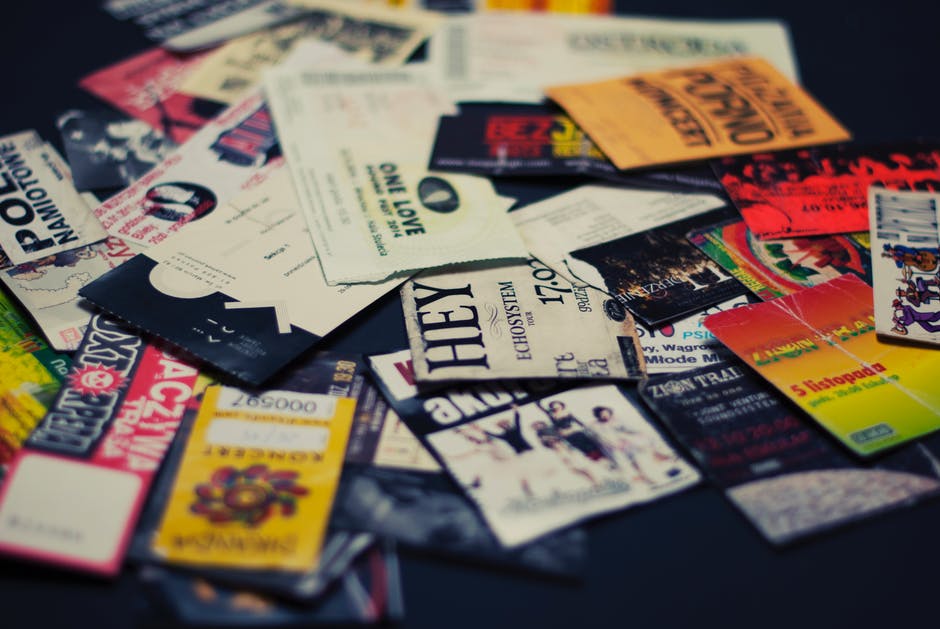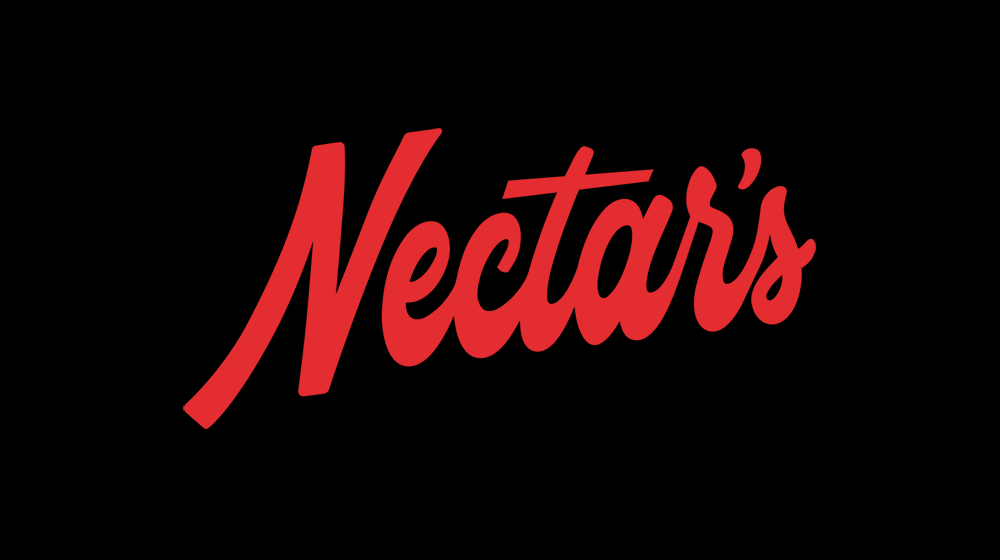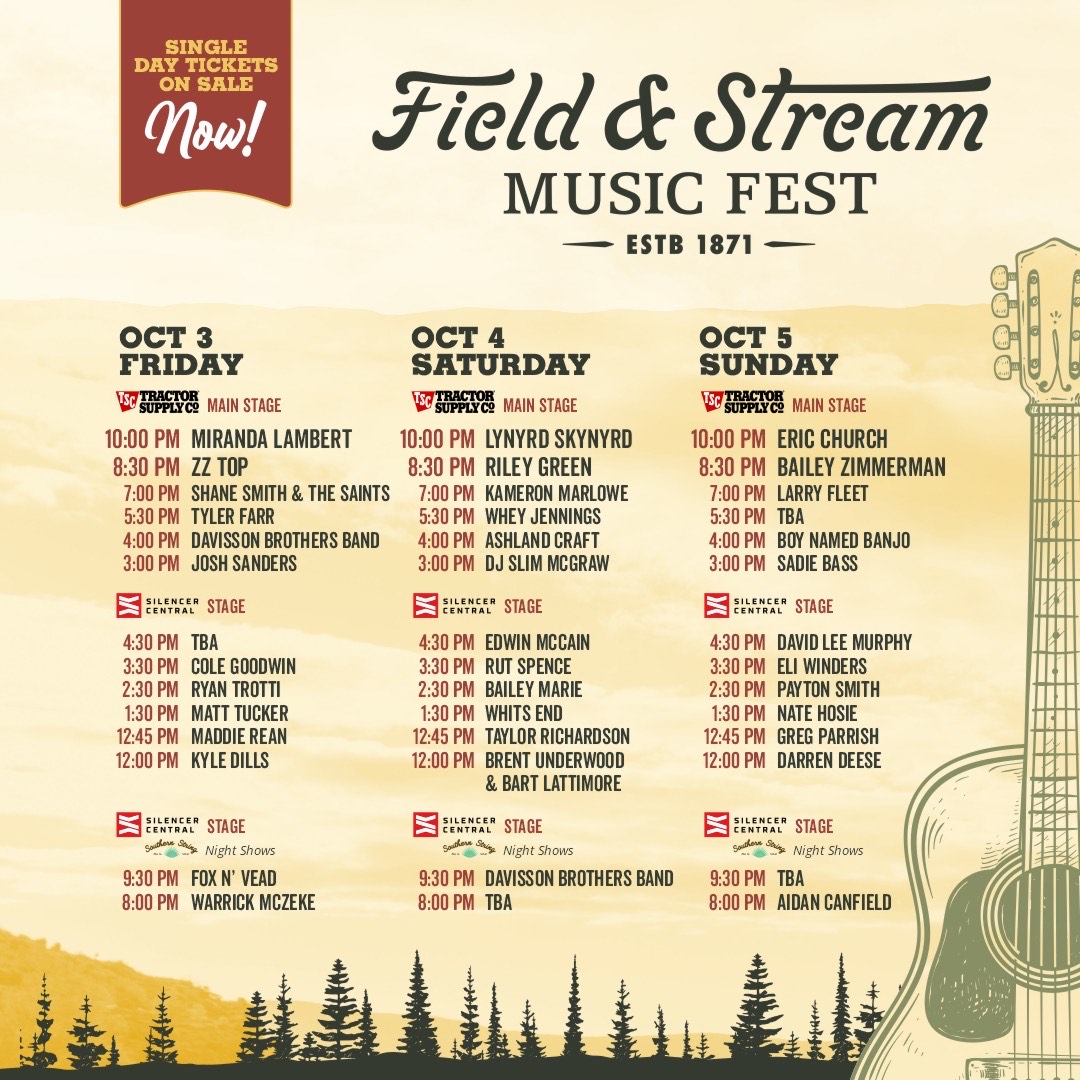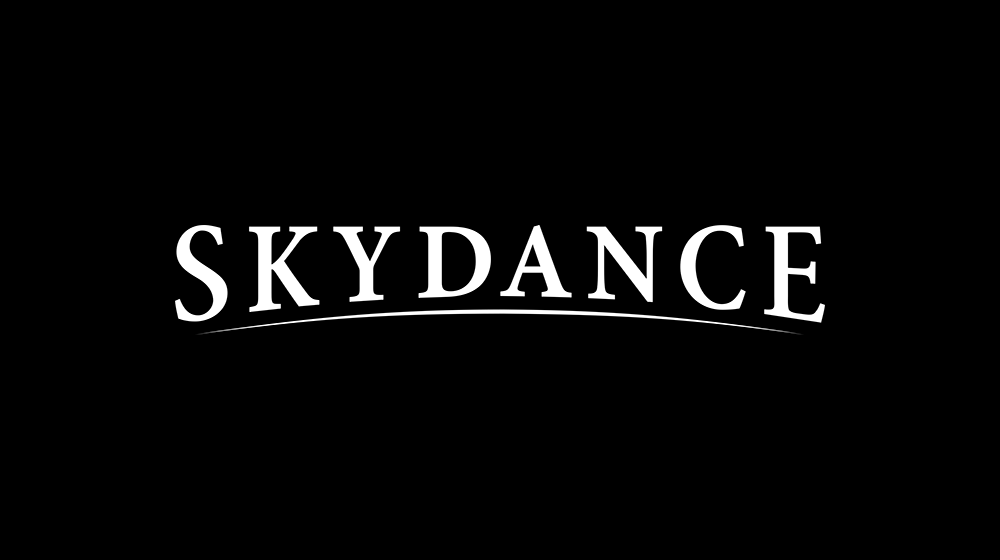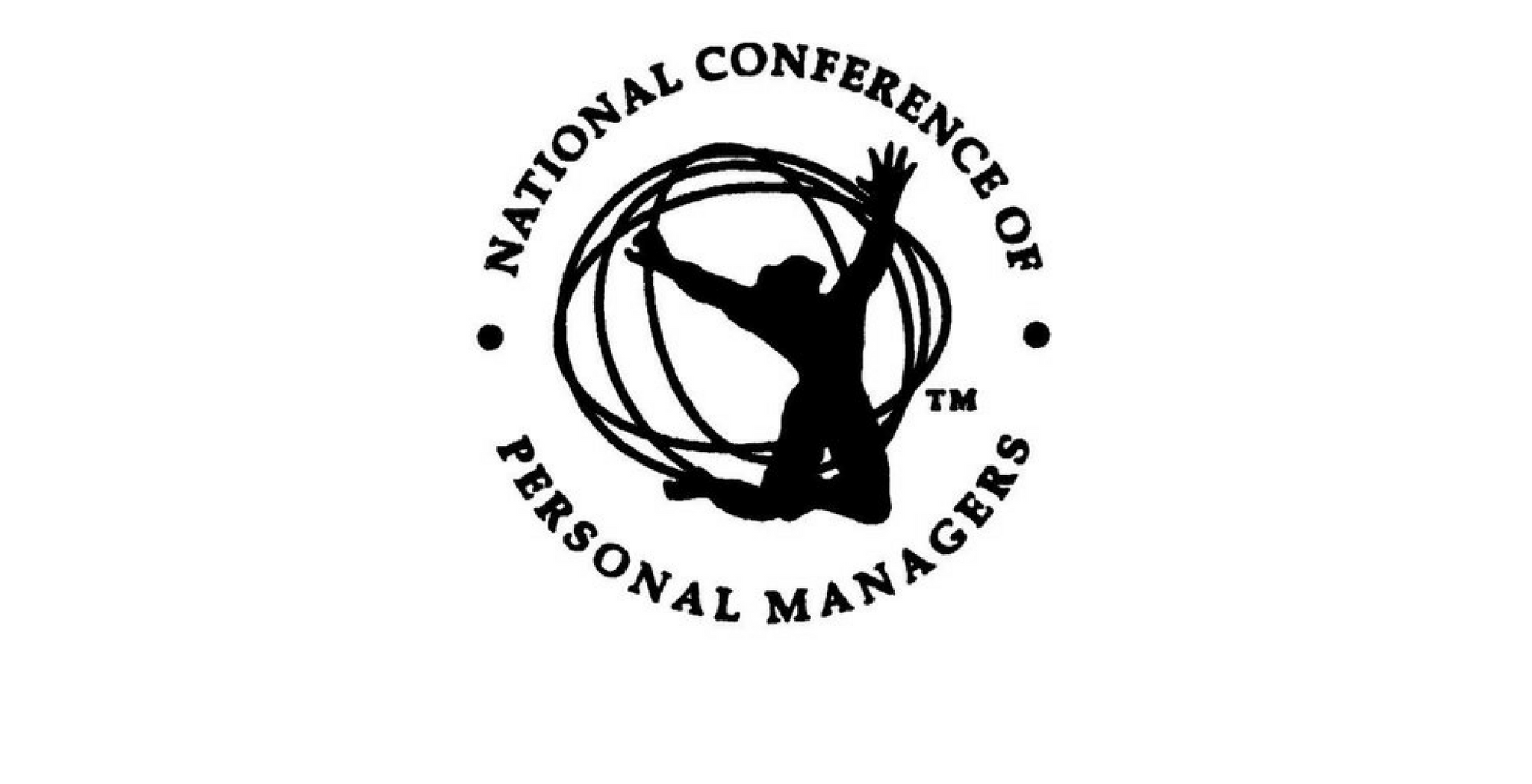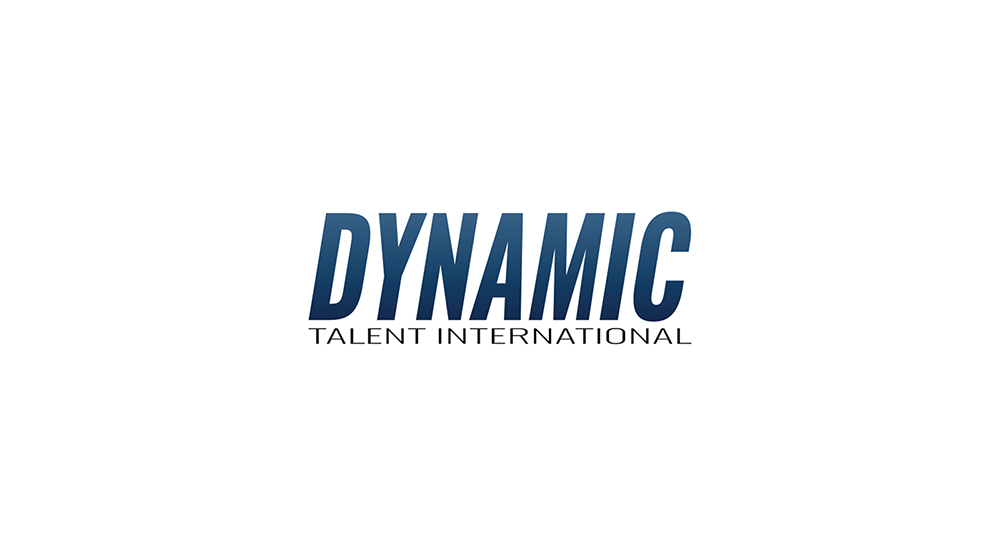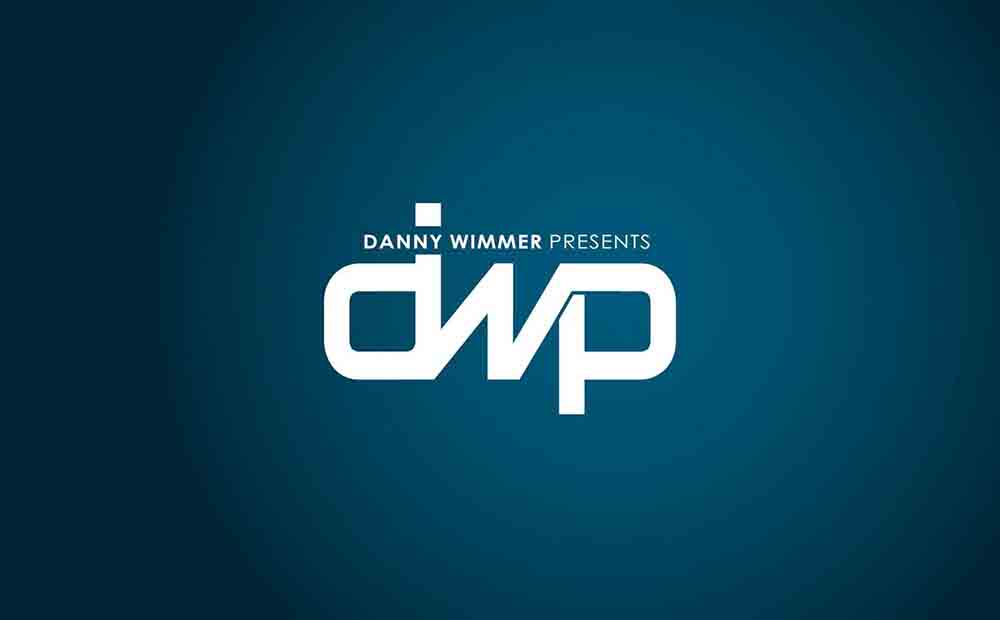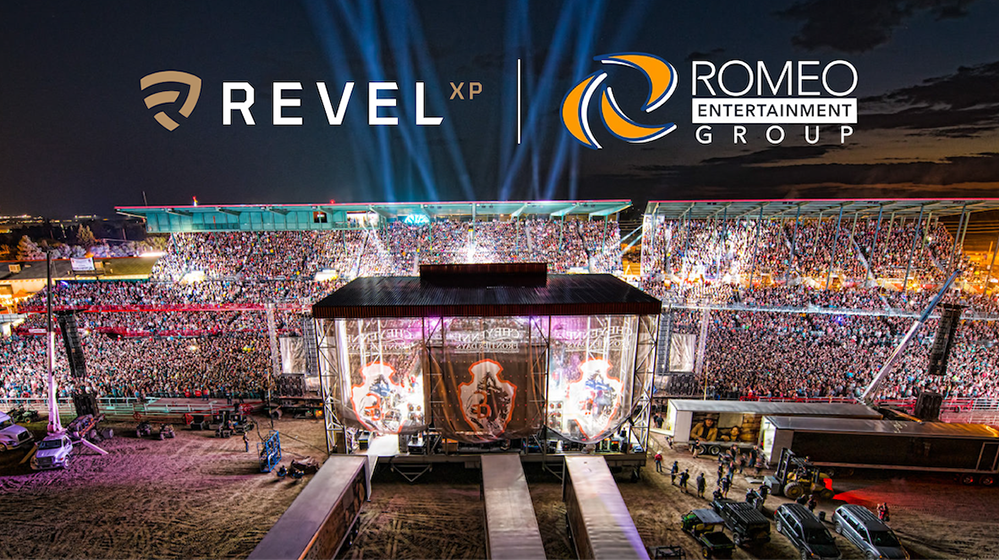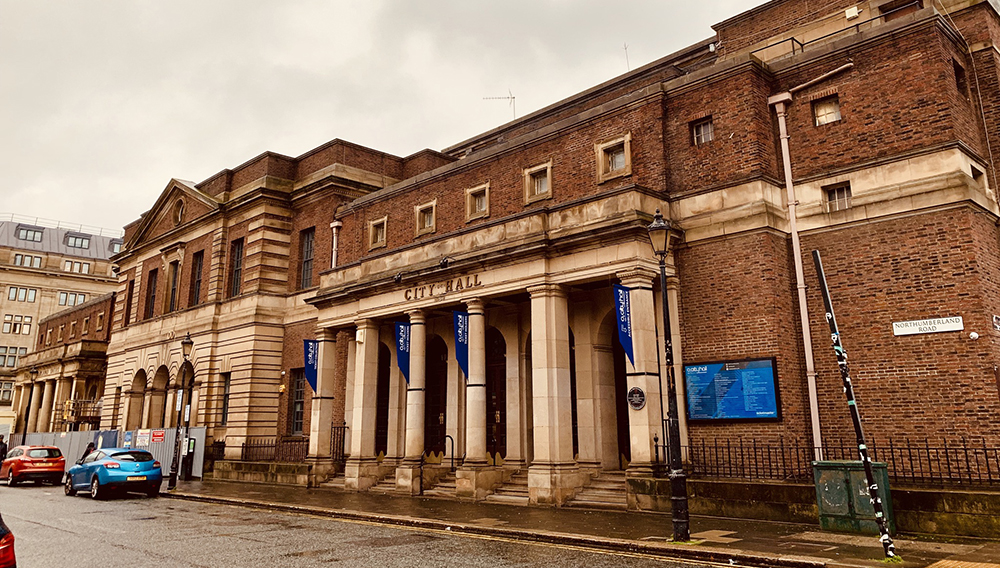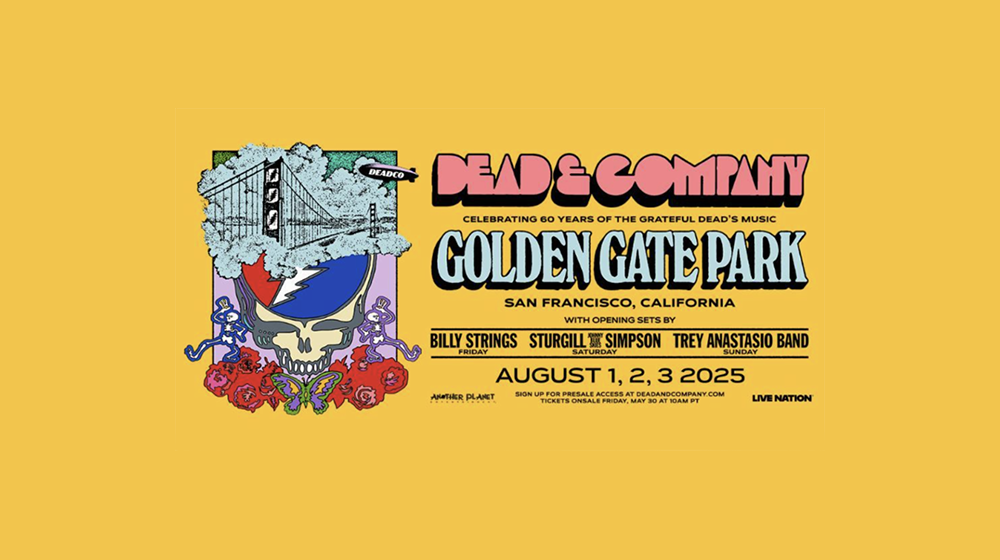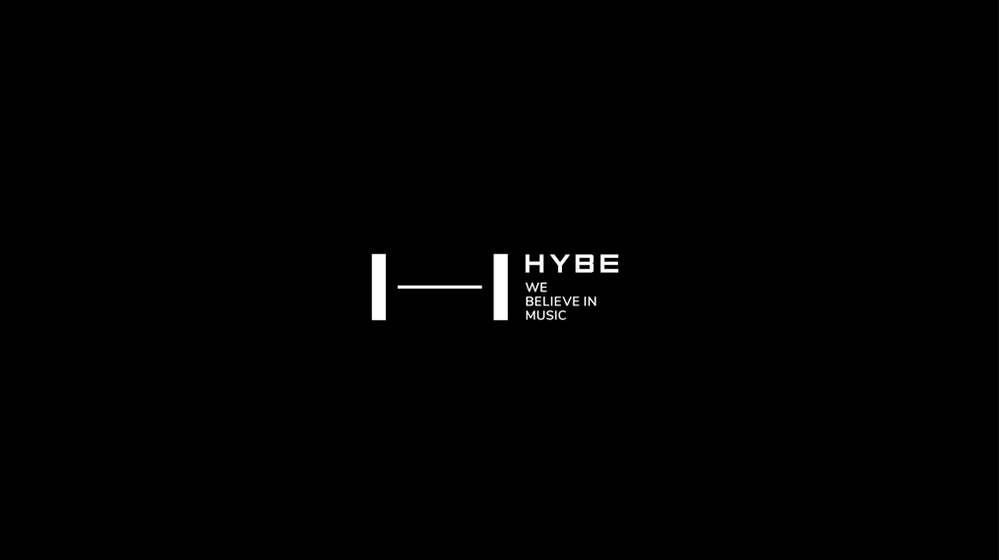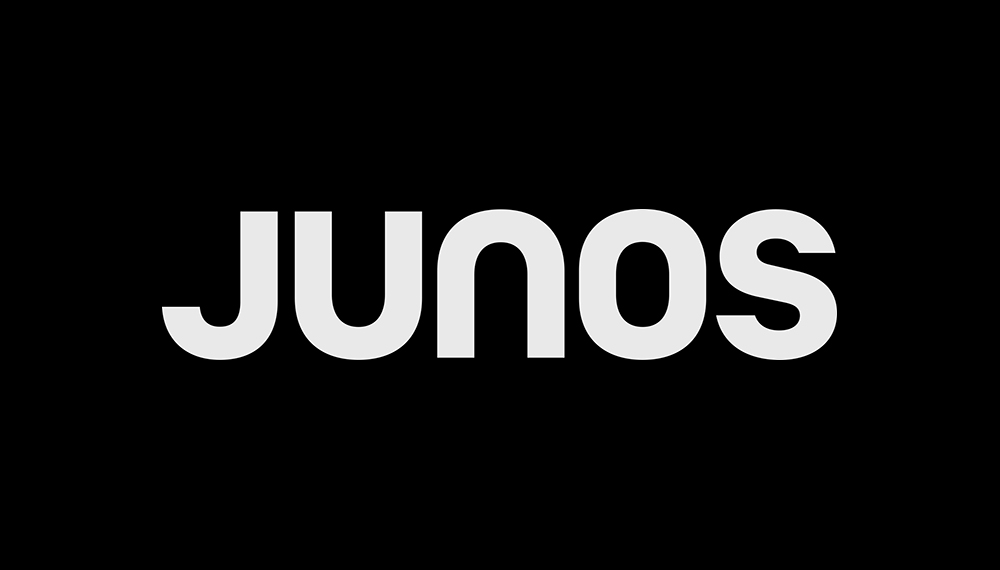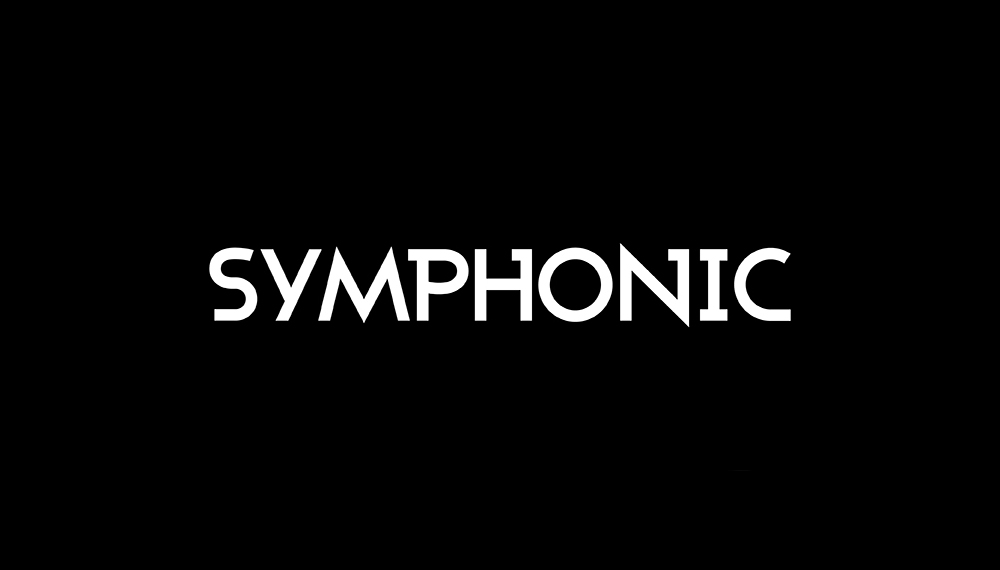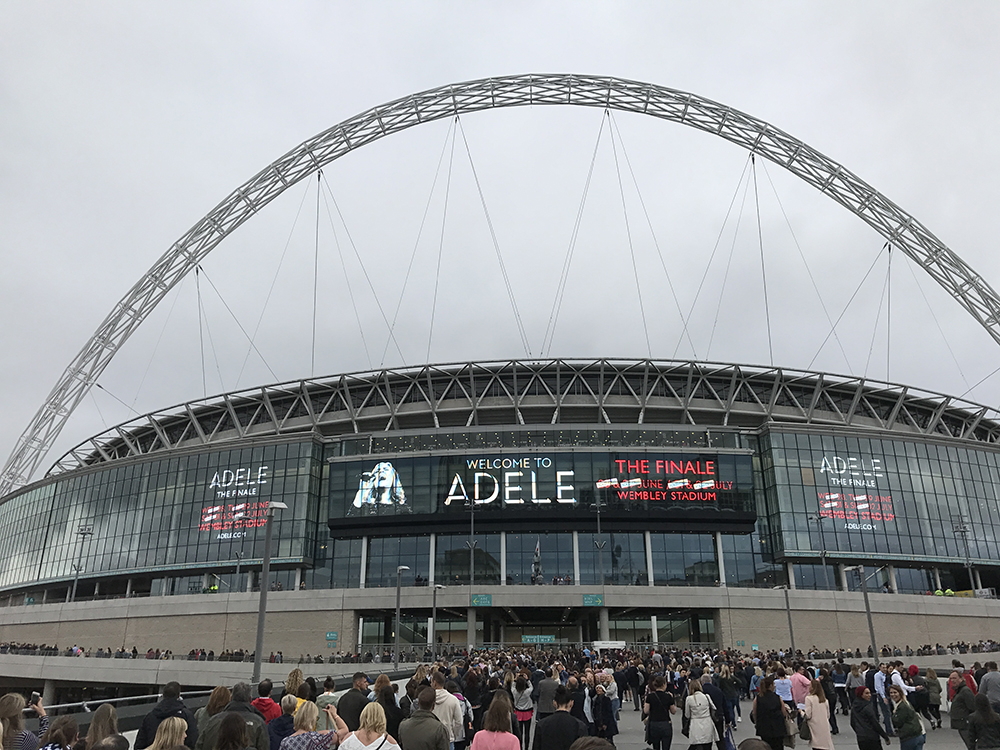This week In the Hot Seat with Larry LeBlanc: Edward Ginis, Co-Founder & Chief Client Officer, OpenPlay.
With an ever-evolving technological revolution, providing unfettered access to high-quality data rapidly, is challenging today’s music industry.
While AI-generated content presents unique opportunities (as well as complex ethical concerns), it is transforming music data management, although the music industry’s historical resilience in adapting to new technological change, indicates just how unprepared many labels and rightsholders are in navigating the future.
A technologist with an expertise that spans large-scale distributed systems, supply chain design, web3, AR/VR, spatial computing, and AI, Los Angeles-based Edward Ginis has a firm understanding of overcoming any seismic shift in the industry’s business model.
Following attending the University of California to study computer science Ginis graduated in 2004, and began his career at the Los Angeles-based consulting company, Gursey, Schneider & Co.
Ginis then joined Concord Music Group as VP of Information Services, where he focused on corporate technology and software integration.
He oversaw the technology alignment, and all software integrations associated with Concord’s acquisitions of Fantasy Records, Rounder Records, and Telarc International.
After Concord merged in 2008 with the Village Roadshow Pictures Group—a unit of Australian publicly traded Village Roadshow Ltd—to form the Village Roadshow Entertainment Group, Ginis was named VP of Information Services & Technology.
With the 2013 sale of Concord to Wood Creek Capital Management, Ginis was promoted to SVP, Information Services & Technology.
Recognizing that accurate data collection was sorely lacking in the music industry, Ginis with Brady Brim-DeForest (Head of Product), and Ben Alavi (Chief Technology Officer) co-founded the music technology company OpenPlay In 2013.
With its content and rights management system dedicated to streamlining the flow of music across various market channels, OpenPlay’s clients have included Warner Music Group and Universal Music Group, and leading independent music companies including the Big Machine Label Group, the Secretly Group, BMG, Reservoir and Concord Music.
Ginis also mentors startups and entrepreneurs including advising Westcott Multimedia, and ScreenSpace, and he co-founded Proto, a leading hologram company.
After sizeable technology shifts, we are now in a transformative era of a musical rebirth driven by industrial science. As I used to say, “I’m up on technology, as of yesterday.”
That’s a great thing, and it’s very true. It changes every minute.
Now a generation of creative young technologists are deeply involved in a fast-changing new music ecosystem that includes the Web3 universe of NFTs, blockchain, metaverse, and artificial intelligence which is not just changing the way music is made, released, and distributed, but reshaping the very fabric of the industry.
Being far better at parsing massive amounts of data than any human, AI is being widely used in business because when systems are interconnected, it creates back-office efficiencies, including discovering gaps in attaining revenue data.
The increasing popularity of AI-generated music is evident as the market was valued at $294.5 million in 2023 and is projected to reach $3.42 billion by 2033.
An issue, however, is that anyone with Internet access is just one click away from creating AI-generated content with the help of widely available tools often trained on copyrighted content.
When Taylor Swift endorsed Kamala Harris for president, the singer said she was spurred to action by her fears about AI—namely, an incident earlier in which Donald Trump posted AI-generated images that falsely claimed her support.
Many artists are now sending cease-and-desist letters to get unauthorized deep fakes of themselves taken down.
In order for them to properly show that infringement is happening, they need to be able to correlate that infringement back to their catalogues.
AI is still in its infancy.
I agree with you, and I am deeply involved with a number of AI companies that I think are at the forefront of what is the more important problem to solve for music, but also for video games, and TV. The battle is happening on the generative AI side which is where they are creating content on copyrightable content.
Generative AI technology, offering unprecedented expression and innovation opportunities, is becoming indispensable for artists and producers to enhance their creative workflows.
The Recording Academy recently announced that the Grammy Awards will now accept music made with artificial intelligence used in the creative process.
In 2023, a deep fake song “Heart on My Sleeve” featuring unauthorized AI vocals on Drake and the Weeknd went viral. The song was taken down by streaming services and deemed ineligible for the Grammys. Then during the Drake-Kendrick Lamar feud, Drake used unauthorized AI vocals of Tupac Shakur, and was immediately threatened with a lawsuit by his estate.
Whereas AI is being used in mastering and equalizing sounds, many platforms are now offering creative and innovative determinations for remixing music.
Apple has integrated AI into its latest generation of its iPhone. iPhone 16 has a range of AI features including the ability to generate, and edit text to fit certain tones, as well as a camera to recognize real-world objects.
YouTube is said to be working on “synthetic-singing identification technology” that will enable its partners to automatically detect content that simulates singing voices.
Beatoven.ai is building a product to generate music in a host of different ways. Users will be able to get a piece of music generated, and customize it as their content.
Spotify features algorithmically-curated, regularly personalized editorial playlists daily mixes, AI DJ and more.
It’s little surprise that streaming fraud–artificially boosting traffic for songs–is a growing problem.
Manhattan federal prosecutors recently charged North Carolina musician Michael Smith– with three counts of wire fraud, wire fraud conspiracy and money laundering conspiracy–for using AI to help create “hundreds of thousands” of AI tracks on music streaming platforms like Spotify, Amazon Music, Apple Music and YouTube Music to earn more than $10 million in fraudulent streaming royalty payments since 2017.
The indictment claims Smith made “false and misleading” statements to the streaming platforms, as well as to collection societies, including the Mechanical Licensing Collective (MLC), and to distributors, to “promote and conceal” his alleged fraud. According to the indictment, Smith was aided by the CEO of an unnamed AI music company, as well as by other co-conspirators in the U.S., and around the world.
The AI that I am most interested in are with companies that are focused on attribution AI protection. Meaning I scan your catalogue, and now I have wrapped the catalogue in a bubble that anytime that you generate anything on it or any of these services (Suno, Udio, etc), and you drop it into this portal, it will identify exactly what songs are from your catalogue, and who those songs are owned by that are being infringed because then you can see what is being infringed.
Music created by AI results in a new copyright which can be a valuable asset.
Absolutely. There’s a path here (for industry growth). We see it with UGC (user-generated content). We have seen it with how YouTube came about. We have seen these situations so there’s a path forward, and this industry, if they can license, and monetize, then it becomes a very accepted practice. Right now, it’s all up in the air because nobody has been able to wrap their heads around how to really monetize this. I don’t think the industry actually wants to prevent it (AI). They just want to make sure that everybody gets paid who are being used to generate this content.
The concern is then insuring that people get approval to use copyrighted work, and making sure humans are credited, and being paid fairly.
I think the industry is moving forward. The detriment comes with the majors now as public companies, and they are driven by quarterly earnings. Sometimes it’s easier to say that, “The world is ending,” for their shareholders, and prepare them. But the reality is that there has never been a better time in the music industry, especially internationally.
Still, so many AIs have developed datasets from online resources without the permission of their creators, and they aren’t transparent about their data sources nor can they prove that the training sets have been approved by the artists whose styles they implicitly referenced.
This is the value being infringed. What is missing in our world today is being able to correlate the proof other than “trust us, it’s happening.” This is why the AI side on the protection end is really important, and there are a number of startup funds working now that are really going to solve this problem.
They’re well-funded too. Tech startups and companies raised almost $10 billion in funding in 2023, according to Digital Music News.
As AI continues to evolve, the role of regulatory clarity will grow.
It is eventually going to allow the AI companies, these technology companies, to effectively get permission properly from these labels, and from these publishers to utilize the content in AI. They will be driven by the decision of these rightsholders, and not by the technology company.
After the European Union (EU) introduced the AI Act, a landmark piece of legislation to regulate the development and use of AI, The Artificial Intelligence Act came into force on August 2024. On August 9, 2024, Illinois Governor J.B. Pritzker signed HB 4875 into law, The bill addresses the emerging challenges posed by generative AI. Illinois became the second state following Tennessee to enact such protections for creators.
California Governor Gavin Newsom has just blocked a bill aimed at establishing safety measures for large artificial intelligence models, The bill would have established regulations on large-scale AI models, but Newsom said the bill could stifle innovation and prompt AI developers to move out of the state. At the same time, Newsom announced plans to protect the public from the risks of AI and asked leading experts to help develop safeguards for the technology.
One strategy would be to include a requirement by rightsholders insisting that attribution be core to every license signed between a rightsholder and an AI developer. Another strategy would be that rightsholders know and train a model into their catalogues so they would be prepared to deal with generative A1.
All of these data companies have huge back catalogues of content that have made no money at all in the past 5 or 10 years. It’s a flat line with a long tail. You can say to these AI companies now, “This part of my catalogue can now be exploited for AI generation; and because we now know every time you generate something we know exactly what song that it came from, and who owns those songs, we can now fractionalize payments back to these artists that nave not seen a royalty check in a long time. So there are opportunities here for these rightsholders, but it all starts with training, and knowing what they have and protecting it, and then monetizing it.
There’s so much growth opportunity in international markets with digital.
I am hopeful in my mission to save developing countries from going through the same missteps that the U.S. companies went through over the past decade. If we can do that then we are going to quickly level off India which has huge amounts of content not yet on the internet. That is going to instill another million people to start streaming again. India is a very creative culture with their film market, and with their music market, Japan, for the first time in history, is about to cross over to 50% digital versus physical. They are not ready at all for the digital onslaught, and they need to be.
In the past decade major labels, and publishers have been pulled into a capital acquisition arms race as investment firms, and new rights players discovered the value of recorded music, and publishing catalogues in dealing with other fields, including gaming, and the metaverse.
At the same time, the mentality of the music industry toward new ideas largely remains, “This is the way that we have always done things.” The industry has a hard time looking inward.
You know what? Everything evolves, and technology was “a minute ago.” What then will not work now, and will not work in the future. It’s a hard change, right? They have a hard time looking, and saying “We don’t know. We need help. Let’s find people that can help.” This is not the mentality in this industry. It’s, “We’ve got this. If we show anyone any weakness, we are failing the market.” That is not the way it should be. That is not the way that any other industry works, except for music, TV and film. I hope the next decade that we will be in a position where we are not as fearful of things like AI or fearful of more data coming our way because that’s inevitable. It is simply inevitable.
At the same time, as many countries have had a different framework for handling copyright or no protection at all, securing credible data from some markets remains challenging, hindering the development of a global register accounting system.
There are individual royalty accounting software systems built and designed for music publishers, writers, artists and labels including Curve, and IRIS and Global Music Rights for music publishers, and songwriters.
Despite performing rights organization (PRO) agreements with other music rights organizations to receive timely and accurate performing and reproduction royalties, we are still seeing a diversity of regulatory strategies from different regimes across regions, leading to being unable to consistently attain credible data.
There’s long been talk of creating an independent central accounting service.
Eric Baptiste, former CEO of the Society of Composers, Authors & Music Publishers of Canada (SOCAN) tried to launch a global register accounting system, but it didn’t happen.
Data collection differs greatly across Europe. Where data does exist on the music sector there, it tends to focus on statistics as opposed to qualitative analysis.
Europe has all of these societies that have a lot of older infrastructure. With Europe. I don’t think that it’s that they want to not have better data, but they are so entrenched with their previous investments that they have made in these systems, that they weren’t able to scale with the depth and volume of the data.
I think that when I talk about egos this is where we need these leaps of faith. We need help. A whole slew of technologists around this world would have solved bigger data problems that the music industry has but the music industry, unlike banking, unlike medical, unlike all of these other verticals who have basically raised their hands up, and said, “We need help,” this industry doesn’t like to do that. It is almost like it’s a badge of honor not to. I don’t know why this industry has such a hard time asking for help.
Your point of building a global register accounting system; that is a dream that will never happen because humans are humans, and waiting for everybody to agree on something is just impossible. What I preach is, “Don’t build a global registry. Don’t build a fancy system. But when you do build your own system build the doors and windows so data can come in and out. So you can interconnect with other parties that have other data that you need, and that they need.”
This is the message that needs to be fed to the world. It’s not about centralizing your data. It is about making it accessible from the outside to the people that need it.
I remember my first (industry) experience in 2013 when we launched. I stepped into this discussion on talking about building the GRD (the global rights database). I listened to the arguments. I didn’t have much to say then because it was my first attendance. But I listened to these arguments, and someone stood up and loudly said, “We can’t talk about this problem right now because we don’t know what China is going to do. Unless China comes to the table, and says, ‘We are in,’ none of this makes sense.”
Really, we are waiting for China to come to this room in Los Angeles to figure out what we are going to with a rights data base?
That has been the traditional thinking.
This is why this industry has a hard time moving forward, and a lot of it (decisions) was committee driven. You look at all of the organizations, and there are committees of people who talk about a problem, but generally they never actually solve these problems or actually live these problems themselves. They just talk about these problems, and they vote on how to potentially handle them, and they publish something. It doesn’t mean that there’s any action that comes out of it.
It is important to remember the valuation for a label or a music publisher is the value of the copyrights owned and controlled. Many publishers are sitting on songs that may soon hit the 35-year limit to be returned to the songwriter.
(Section 203 the 1976 U.S. Copyright Act states that for works after January 1, 1978 (the year the Act went into effect) grants, assignments and licenses can be terminated during a 5-year window starting 35 years after such grant was made. For the termination to be effective a letter requesting that the copyrights revert to the songwriter must be sent no more than 10 years prior, and no less than two years prior to the effective termination date.)
That’s 100% true Larry. And with AI, if it’s done right, if licensed correctly, it could be the savior of that long tail (of copyrighted content) that is currently getting no monetization. This could be used to generate content. They don’t want you to generate the next Taylor Swift album, or the next Drake album. But if you are going to generate something (based on music) that has not made a dollar since 1974, that’s found money. I think that is what the industry is going to find with AI; that there is a huge pot of money in monetizing the generative side of the long tail catalogue.
Many of today’s label executives neither know or care about deep catalogue. There are still labels who refuse to consider catalogue reissues; nor will they let anyone else do them either. The attitude is, “If we aren’t going to put it out, you aren’t going to put it out either.”
While hard drives gained popularity over spooled magnetic tape in storing music content, we now know that hard drives will eventually fail. Additionally there may also be computer storage issues including the separation of samples and finished tracks or with proprietary file formats requiring archival versions of software.
In some cases major labels have closed down sections of their vaults because of the expense of having tracks digitalized. Instead they have sent thousands of tracks to the Library of Congress for storage preservation.
In the mid-1960s, United Artists, EMI UK, and Pye were continually releasing recordings from their vaults. That type of music archival efforts dried up as majors developed CD budgets or streaming catalogues. With the exceptions of Sony Legacy, Universal Music, Rhino-affiliated Handmade, Warner Music, and Concord Music, the majors stopped digging deep into their catalogues by the late ‘80s. It’s as if the attitude became, “If we are going to only sell 15,000 units, why bother?”
In 2014, I asked Cheryl Pawelski, owner/partner, Omnivore Entertainment Group in her In The Hot Seat profile, “Are the majors any better today about understanding the value of their recorded music holdings?”
She said, “I think less because the fact that they are understaffed, and attention is pulled in so many different directions. I can’t tell you how distracting digital as a form is, and how unwieldy it is on the accounting and royalty side. There’s sort of one piece of repertoire that is fractured in a million different directions. The work has gotten heavier, and the staffs have gotten thinner. It’s really hard to pay attention to that stuff, and it’s harder to develop the stories that are sitting there. That’s why we formed Omnivore.”
Two decades ago, the music industry was warring with the technology sector, refusing even to license ring tones. That somewhat changed as older executives left, and newer tech savvy executives took their place, coupled with the mergers of music, games, TV, and film, as well with the wave of new types of online music distribution.
Music-based digital experiences began to be delivered in an assortment of ways, but label and music publishing self-interests made connecting with streaming platforms, social media, and audiences difficult for years.
Delivering music to Digital Streaming Platforms (DSPs) can, and should be seamless, without friction or proprietary data barriers.
We live at a data crossroads right now as DSPs have required more and more metadata to be delivered by labels and rightsholders with their music to make and distribute new works. And with the industry just beginning to embrace Web3, AI, and other innovations, the demands for data is only going to grow.
It’s very true. I had the fortune to join Concord Music Group (as CTO) which was a growing company when I was 25. So being able to see from that from a vantage point with my younger lens it really was necessary, and still is necessary. There is a predominance of leaders out there (in the industry) that still need to embrace what we embraced 15 years ago.
(Launching in 2013 OpenPlay—with its flagship products, OpenPlay Music and OpenPlay Platform—ties together in the cloud all the processes of making and releasing music into a single application: Managing catalogs from start to finish—metadata, assets storage, and management; rights, clearances, expirations, distribution, playlists, and even the tracking song creation in studio).).
Since its launch, OpenPlay has broadened its apps and platform content pool in order to have increased access to tracks. This now includes not only labels and distributors with Merlin but adding VEVA Collect, in 2023, adding music distributors STEM and Too Lost, and the music asset and catalog management firm BeatBread this year.
Yes, that’s right. We are big believers in giving rightsholders choice, optionality,; whether they have a better deal with STEM, or they do everything themselves and if they want to go to market without paying for it, there’s Too Lost. The reason we wanted to expand, and continue to do so, is that we want the decisions to always sit with the rightsholder not to be told, “You have to do business with us because you can’t go anywhere else. You are stuck with us.”
OpenPlay delivers complete, fully validated, market-ready DDEX files that conform to every DSP’s unique style guide, allowing distributors and labels to simply pass content to DSPs, hands-free, with no intervention required.
Yes, and OpenPlay manages digital rights, assets, and metadata. It manages the contractual deals. It manages physical and digital content, video content, merchandise, and content in the vault. We have a session content.
That is where we started, and then we branched into publishing. We have music publishing and recorded music under one ecosystem. The publisher can work with the record labels in our space. That allows them to collaborate to the point that they can do face deals more effectively. They know what they own when using PFDs which is not often the case with publishing. It is usually the last resort in all of this.
Was bringing Jonathan Bender into the company in 2022 as the Chief Operating and Growth Officer because he has an understanding of all sectors of the international music industry, including navigating complex copyright and royalty issues?
We brought Jonathan in because we knew that publishing was going to be a big roadmap item for us, and it is today. We wanted to attack the challenges that he had experienced with blackbox (unallocated or unclaimed royalties at collection societies) that he cleaned up at SoundExchange. We wanted to elevate our footprint with (music) societies, and PROs because they needed this help. Most of them have too much ego to admit that they need help. And that’s the other problem Larry in this space in that we are battling these companies, and their egos about not admitting that they need the help, that they need the systems. Everybody says, “We clean up ourselves. We are building something ourselves.” They spend $20 million, and nothing gets fixed. Nothing gets solved.
Jonathan Bender’s career began at EMI where he held multiple positions in L.A. and London, eventually heading up the company’s first new technology group. Afterwards, he joined the Universal Music Group as VP of Digital Asset Management and Logistics. Next, he served as the senior VP of Operations and Information Technology at Concord Music. Then he became the Chief Operating Officer at SoundExchange.
Historically, competition with music has largely focused on who had better systems, and who could get to market quicker and cheaper.
One of the major shifts in our industry has seen many of those barriers come down, making competition to be where it belongs–talent and fan engagement. Nobody should be out there competing on who has better metadata systems, who can store the audio better, or deliver it to a DSP.
Nevertheless we still see affiliated and independent labels under a corporate multinational umbrella competing against each other. Lucian Grainge has built the Universal Music Group into a titan unprecedented in the music business fueled by five anchor labels — Capitol, Def Jam, Interscope-Geffen-A&M, Island and Republic—and is known for fostering a competitive environment between his executives.
In February (2024) UMG reorganized its label divisions into a loose East Coast-West Coast structure, aligning Republic, Island, Def Jam and Mercury under Republic Recording Company chairman/CEO Monte Lipman, and Interscope, Geffen and Capitol under Interscope Capitol Labels Group chairman/CEO John Janick.
What others are missing, and what Lucian needs, is that he wants them (executives under him) competing on talent, not on who has better data or who has better systems. This is where the competition shouldn’t be happening. It shouldn’t be in front of a keyboard, and a mouse. It should be on who can spot better talent. Who can promote better talent. That is what Mr. Grainge has meant, but everybody looks at it differently. They took it as, “Let them see what systems that we use because they might learn something to do something better, and that we will lose our competive advantage.” Again this is where these majors, they created these fiefdoms inside their walls, and it’s hard to break past them. And if you look at any other vertical you can’t find a core for this type of insanity that we see in the walls of these music companies.
While you worked at Concord Music Group it grew from being a small company in Nashville to moving to Beverley Hills and acquiring a slew of impressive independent labels including Fantasy Records, Rounder Records, and Telarc Music Group. Concord was then acquired by Village Roadshow Entertainment Group, and next by Wood Creek Capital Management.
In 2023 Concord acquired Round Hill’s UK-listed fund (Round Hill Music Royalty Fund) for $468.8 million. This year Concord withdrew from competition for the assets of Hipgnosis Songs Fund, offering $1.511 billion, or $1.25 per share as the Blackstone private equity firm purchased Hipgnosis with its offer, $1.572 billion or $1.30 per share.
With all of this activity at Concord when you were there, what a great opportunity for you.
It was a great opportunity. In fact, I was not expecting the opportunity. I didn’t know much or anything about music other than I enjoyed it when I met Bob Valentine (then president of Concord Records), and he pulled me into this world. He was new to the company as well. We were both generally unaware of all of the things that ware going on (in the music industry). He didn’t come from a music background either.
So there was a lot of synergy in the things that we were learning together. And Glenn (Barros), who was there (as Chief Operating Officer), he was not only a supporter but a mentor. He’s a very analytical, financial data-driven guy which wasn’t always the case then (in the industry). Now you have more and more finance guys coming into the music space because of all of the multiple rights, but in 2004 when I joined the team, and looked up catalogues at a gross level, there was not anywhere near the sophistication of what we have today.
Bob Valentine started his career as a financial analyst in Morgan Stanley’s investment banking division. While working for Norman Lear and Hal Gaba at Act III Communications, he helped to negotiate the purchase of Concord Records. He subsequently served as liaison between Act III and Concord. In 2001, Valentine joined Fox Entertainment’s television business development group. In 2005, Valentine returned to Concord as chief financial officer and served in that capacity at the company until 2021, when he was named president. In 2023, he became CEO of Concord.
One of your interests growing up that continued following college in 2004 was building and connecting large scale technologies. This led to you joining the consulting company Gursey Schneider which was offering its forensic accounting services to clients with older technologies.
This allowed you the opportunity with sizeable latitude to work with clients across many sectors.
It was a local firm. I helped build their technology group to offer software, and data services to customers who were mostly tax and accounting firm customers. Concord was a tax and accounting customer.
Gursey Schneider and Co. was headquartered in Century City with offices in Irvine, El Segundo, San Francisco and Encino. The firm’s custom software development department created a proprietary software to improve and streamline accounting. It also created the tracing program, Ceres used in family law forensic accounting.
That’s right. They do a lot of family practice forensic accounting. They are one of the best for that type of work. So the part that I was in was a little bit out of left field for an accounting company of that caliber, but it actually made a lot of sense because if you think about forensic accounting, it’s all data driven programs. It analyzes huge amounts of credit card, and banking data, and tries to make a story from that data. Gursey really did it much more elegantly, and also much more forward thinking than anyone else in the forensic space at the time.
These are forensic accounting concepts that none of the major record companies were aware of then. When you came onboard full-time at Concord 6 months later, labels generally were still utilizing an old school model which was essentially a “pick, pack and ship” physical distribution model with its attendant costs being manufacturing, warehousing, shipping, and regional sales offices.
When iTunes launched, the music industry needed a new digital distribution system, and the one it built was based on what they knew: The physical distribution “pick, pack, and ship” model.
Despite the physical infrastructure being replaced with new types of online music outlets, the industry continued to be locked into this highly centralized outdated data model rigged to keep signed artists, and distribution clients in the fold, and making switching to other distributors costly.
While label executives publicly touted bringing the industry forward, they continued relying on this outdated model. It was in their short-term and self-interest to operate within this system. Nor did they want to admit that they were on the wrong side of technology innovation.
No and I would say that most of them didn’t even think that it was even necessary. Previous to my tenure, the industry was a very physical-driven world, and everything created over the past 20 years before I joined was built around warehousing: picking packing, and shipping. They never thought of converting (software or systems). Bob and I didn’t trust any number that we saw on any spreadsheet or report (from a distributor) when we started. It was just off-the-cuff, very inaccurate, and nobody really paid that much attention at the time because data was not a thing.
Data then was deemed simple. “We shipped on these terms and some product came back. That’s the data.”
There was an apt industry saying back in the day, “Shipped gold, came back platinum.”
Oh, and we saw it firsthand. We saw the gamification (the process of adding elements to something so as to encourage sales). We saw the challenges. A lot of it came from the acquisitions that we did, right? Concord and Glenn (Barros), he would not let those type of actions fly, but certainly as we bought companies, especially Fantasy Records. (Owner) Saul Zaentz really did a number on that label. A lot of the stuff was fabricated. There were jaw-dropping moments that Bob and I had when we acquired Fantasy. I spent 8 to 12 months living in that facility, in that warehouse. figuring out what it was that we had bought. We learned that every track that they had in the system had different timings than the track timings on the actual recordings. We were scratching our heads wondering why every track was off. Saul Zaentz, to reduce royalties, had people listening to these tracks, and any time a vocal was being descended, he eliminated those seconds to shave down royalties. It was mind blowing. In a (digital) world we had to deliver to Apple, and Apple was rejecting all of it because the timings that we gave them were completely wrong against the recordings.
John Fogerty has long talked of his legal fight with Fantasy Records’ Saul Zaentz over the music publishing of his Creedence Clearwater Revival songs and other issues, When it became clear that he couldn’t win back his music publishing from Zaentz, Fogerty for years quit performing his biggest CCR hits including “Proud Mary,” “Born On The Bayou,” and “Bad Moon Rising” because he couldn’t stand for Zaentz to make money off of them.
John Fogerty later wrote some songs about his issues with Fantasy.
Yes, “Zanz Can’t Dance,” and “Mr. Greed” on his third solo Warner Bros. studio album “Centerfield” in 1985. After Saul Zaentz threatened to sue for defamation “Zanz Can’t Dance” was changed to “Vanz Kant Danz” with Fogerty muttering the “v” sound onto the original track, it was edited onto the parts where he sang the first “z” in “Zanz”
Asked by Billboard editor Melinda Newman in 2015, how it felt when he heard that Saul Zaentz had died a year earlier year, Forgerty replied: “Amazingly, I had very little feeling at all, almost none. And it’s so weird because I had promised myself, you know, 40 years ago, ‘Someday I’ll dance a jig on [his] grave.’ I literally saw myself like a little leprechaun and holding, in one hand, my half of a gold record that we had gotten for ‘Suzie Q,’ and I was going to throw that down in the hole where the casket was. It was sort of almost a non-event.”
In 2023, Fogerty struck a deal with Concord to take a majority stake in CCR’s publishing catalog, giving him ownership over his songs after decades of failed attempts. Fogerty didn’t purchase 100% ownership of the publishing rights, but he now holds the majority stake in his works.
That was a brilliant move by Fantasy.
It was not only brilliant, but what I love about Concord is that they are driven by what the right thing to do is. It may not be financially beneficial, but it is the right thing to do. Concord—why I stayed as long as I did—was because of their ethos. Their ethics are probably the best that I have seen in the industry. I know that I am biased coming from there, but I have had the luxury since then to spend time with hundreds of labels, and I would say that Concord is one of the companies with the best ethics in the music space.
2024 has turned out to be a very big year for Creedence Clearwater Revival as “Have You Ever Seen the Rain,” released as a single in 1971 from the album “Pendulum” (1970), landed on both the Billboard Global Excl. U.S. chart, and on the Billboard Global 200, which includes information from the U.S.
Fantasy has a very iconic highly revenue-driven content library, especially with Creedence, and the Thelonius Monk catalogues, and all of the other iconic catalogues. And the staff there was very proud of their work. They were very, I would say, initially not thrilled that Concord bought them.
Why?
They were bigger than Concord at that time. So the thought was, “Why is this small company, this jazz-focused company, buying us?” Especially the press team there, they saw themselves at a level of most other music legacies.
Founded by brothers Max and Sol Stanley Weiss in 1949, Fantasy Records first issued recordings by jazz pianist Dave Brubeck, pianist Vince Guaraldi, and comedian Lenny Bruce. Saul Zaentz joined the company in 1955, and became president in 1967. He and a group of investors bought Fantasy from the Weiss brothers that year. Next came releases by Charlie Mingus followed by the acquisitions of Prestige Records in 1971 (with its catalogue of Gene Ammons, John Coltrane, Miles Davis, Stan Getz, Thelonious Monk, and Sonny Rollins), Riverside in 1972 (with releases by Randy Weston, Thelonious Monk, Cannonball Adderley, Bill Evans, Charlie Byrd, Johnny Griffin, and Wes Montgomery), and Milestone Records (1972) which reissued many historic jazz recordings, including by Jelly Roll Morton, King Oliver, and the New Orleans Rhythm Kings; and issued historic blues recordings by Driftin’ Slim & His Blues Band, Mississippi Fred McDowell, and Big Joe Williams.
As part of its purchase of Fantasy Concord also acquired all Stax Records repertoire recorded after May 1968, numerous pre-May 1968 Stax singles and albums, and its later signings Fat Larry’s Band, Rick Dees, and Sho’ Nuff.
I would say that the reason that Concord had grown and had such a foundation of revenue was because of the Fantasy Record catalog. It not only opened doors to all of the deals that led to the music partnership with Bob Austin, and also the work that we did on “Ray Charles: Genius Loves Company” with Fantasy having a music partnership with Starbucks, and Ray Charles.
The posthumously released “Ray Charles: Genius Loves Company,” recorded between June 2003 and March 2004, and released August 31, 2004 following Charles’ passing on June 10, 2004, was produced by Concord Records co-founder John Burk who approached Charles with the concept of a duets album in collaboration with Concord Records, and Hear Music, the label owned by the Starbucks. Duet guests included Natalie Cole, Elton John, James Taylor, Norah Jones, B.B. King, Gladys Knight, Diana Krall, Van Morrison, Willie Nelson, and Bonnie Raitt.
Rounder Records was acquired by Concord in 2010. How did Rounder differ from Fantasy?
Rounder was a different animal completely. Rounder were bluegrass folks. It was a very different niché audience, complimentary in many ways, and also very opportunistic the way that catalog sales had come out. It was very opportunistic for Concord for financial reasons.
The strategic partnership of the original leadership team who co-founders Rounder Records in 1970 – Ken Irwin, Marian Leighton Levy and Bill Nowlin, as well as the label’s first and long-standing president/CEO John Virant–-led Rounder Records together for 40 years, steering its roster to over 40 Grammy wins during that time.
Rounder’s early successes came with recordings by Norman Blake, Hazel Dickens and Alice Gerrard, and J.D. Crowe and the New South followed by the commercial success of George Thorogood, and its forays into reggae, Cajun, blues, and other styles. Then there was the enormous success of fiddler and singer Alison Krauss who had signed with the label at age 14.
Rounder changed from its roots course in 1997 when Virant, previously the label’s general counsel since 1992, was appointed president and CEO. Virant launched Zoe Records with the likes of Blake Babies, Juliana Hatfield, Kay Hanley, and Sarah Harmer. Among untraditional signings over time were the Tragically Hip, They Might Be Giants, Rush, the Offspring, Robert Plant, Dolores O’Riordan, Ann Wilson, Minnie Driver, and Cowboy Junkies.
When bands like Rush became a major part of the label, there was a deviation there. The seminal artists like Alison Krauss, they were really driving Rounder forward. But Rounder, also again, was the product of an older era in the music space.
Rounder Records is a subject of a 2023 book, “Oh, Didn’t They Ramble: Rounder Records and the Transformation of American Roots Music” (University of North Carolina Press), by the North Carolina music journalist David Menconi.
I don’t see how companies like Rounder nor Telarc which Concord bought in 2005 could have survived in today’s music environment.
Those were labels that did the right things over the past 20 or 30 years prior. But yes, I would say that they were not set up for the future. They would not have survived as a stand alones if a company like Concord did not come in, and really invest in rebuilding those foundational brands.
Telarc International Corporation was founded in Cleveland Ohio in 1977 by two classically trained musicians and teachers, engineer Jack Renner and producer Robert Woods. The label, known for its audiophile recordings of classical jazz, blues and soundtrack recordings, garnered 50 Grammy Awards and released over 600 recordings including by Oscar Peterson, Clark Terry and Andre Previn and Los Angeles Philharmonic Orchestra, and Christoph von Dohnanyi and the Cleveland Orchestra, as well as buy symphony orchestras in Cincinnati, St. Louis, Atlanta, Baltimore, and Boston.
Being at such a senior executive level at Concord gave you the insight to discover issues within the music industry, and to build and bring means to manage its disparate catalogs acquisitions. While you were at Concord, the Symphony system was born, and thrived until the concepts, and the technology developed were spun off to launch OpenPlay.
This is where we at Concord decided that we were going to do something; We were going to build something that was unique, and hopefully help the industry. We didn’t realize how it would eventually become. What we built and started within the walls of Concord was a thing called Symphony.
And from that we were able to spin that technology off to form what is now OpenPlay and bring that technology and capability to the rest of the market.
OpenPlay launched in 2013, but it started in 2009 with Symphony.
After a number of acquisitions, it took us year to fully digest what was there. We knew it was untenable to build from that position without an infrastructure to accommodate it, and that is where the OpenPlay idea was born.
To me, the fact that these guys (label executives) devoted some capital, and hopefully there was some ability so that they would move forward and actually do something correctly, was actually the wrong thinking.
OpenPlay Direct Delivery launched in 2023 to further help independent labels deliver music to DSPs with as few proprietary data barriers as possible.
It uses basically the same template your team had developed with Symphony as the ongoing issues are practically the same.
With the challenges of music ownership and distribution always revolving around central metadata, rights ownership, assets, and financial performance reporting, what was needed was a reliable quality data management system to ensure the delivery of high-quality, trusted data to end users.
A system that identified and resolved all data quality issues.
Yes, it was glaringly visible, especially to me as an outsider, that this industry did not have a good understanding of data or content at all. They weren’t set up for it. They didn’t know what to do with it. I had no good frame of reference of its use for the industry. At first, I thought it (the data recovery system) was just for Concord. But then I spent a lot of time with Universal Music, Warner Music, Sony Music, and all these major companies that were substantially bigger, and I found that the problem was even worse because they were upscale.
Record companies had really bad software companies. They had different focuses, different key needs.
Many of the major labels have lost original music content in their vaults.
There was the destruction of masters in a RCA warehouse in Camden, New Jersey. in the early ’60s. There was a fire at the Atlantic Records storage facility in Long Branch, New Jersey, in 1978 that destroyed 5,000 to 6,000 reels of tape recorded between 1948 and 1969.
A 2008 fire at Universal Studios Hollywood spread to Building 6197 where there was a vault containing the master tapes to hundreds of thousands of recordings. The vault held masters for the MCA, ABC, A&M, Geffen and Interscope labels. Master tapes from Louis Armstrong, Buddy Holly, Ella Fitzgerald, Eminem, Nine Inch Nails, and Nirvana were among those consumed.
In mid-August 2024 the archives of Asbestos Records in Connecticut, were destroyed when its offices were flooded during A record breaking rainfall. Asbesto has a deep history in ska music, frequently re-releasing new vinyl pressings of out-of-print albums by bands such as the Mighty Mighty Bosstones, the Hippos, the Suicide Machines, the Pietasters, and -similar artists such Atom & His Package, and They Might Be Giants.
I have dealt with several American labels who had no idea what they actually owned.
You are right. But all of that was not where we said, ‘we have to bring this to the market.”
What was the inducement?
It was a moment of extreme anger that launched OpenPlay. It was an anger that I shared, Bob (Valentine) shared, and Glen (Barros) shared. That was because having built something ourselves we went to our distribution partner because we had been keying in this data into their systems as we were getting this music out into the market. So we went to them and said, “Can we please have our data back?” And they said, “No.” And that was a wake-up call for us. That we being the rights owners could not get access to our own data, our own music, our own everything, that we had spent the past 8 to 10 years putting into these distribution systems thinking that they were our partners. Thinking that we could get the data back anytime that we wanted.
Concord’s distributor held the data?
Yes, it was Universal Music. And the whole market was driven by distributor deals, and these distributors, especially in the late oughts (2006/2007) were trying to hold onto a business model that was built in the ‘70s, ‘80s, and ‘90s which was picking, packing, and operating a warehouse; where they could charge 20% of your revenue for all of the overhead that went into distribution. But as things moved forward digitally that distribution cost went down, but they knew what they needed to preserve margins. So they came up with every possible way to keep those rates as high as they had been; and holding onto your data was their way of insuring that you are not going to move to another distributor. It was a protectionist play which, by the way, is still in the market today with some distribution partners.
The inevitable economic quandary facing a music distributor is that if it does a great job for a distributed label than that label will leave them over time. If they do a poor job, the label will leave. Therefore distributors don’t want to give an inch. They don’t want to share information knowing a label is going to leave them one day.
Also the major labels had lost market share to an array of new digital distributors that were allowing artists and labels to upload songs to streaming platforms for a negligible fee or a small percentage of royalties.
This forced the majors to further be aggressive and play defense.
Nevertheless, the days of data hoarding are over. There is a fundamental shift in terms of sitting on information by itself is recognized by many as being counter productive. Generating insights from data is more valuable.
Sharing that information and increasing the data asset quality should be important to all parties.
So let’s talk about that in a different in industry. If a client switched accounting firms and the last accountant said, “I will not give you your financial data for your chartered account. All that work that you own because it’s your accounting, you have to start from scratch.” Or if you are leaving a bank to go to another bank and the bank won’t send your money. “It’s in our account” and being told “We have no ability to send it. We just store it.” That is basically the message that (music) distributors put out to the market. That didn’t sit well with me.
A world where, when switching accounting firms, you were told you couldn’t have your data back which was, and in some ways is still the state of play when trying to get your music data back from your distribution partners.
That was at a time when Marc Benioff (co-founder, chairman and CEO of the software company Salesforce, as well as the owner of Time magazine) was out with a megaphone yelling to the world that they should abandon their homegrown, proprietary systems that were trapping critical business data inside of them, and move to a shared SaaS platform (that allows users to connect to and use cloud-based apps over the Internet).This shift single-handedly helped eliminate thousands of systems, and saved hundreds of millions of dollars.
Marc Benioff has co-written four books about business and technology. In 2004, he co-wrote “Compassionate Capitalism: How Corporations Can Make Doing Good an Integral Part of Doing Well” with Karen Southwick. In 2006, he co-wrote “The Business of Changing the World: 20 Great Leaders on Strategic Corporate Philanthropy” with Carlye Adler. In 2009, he co-wrote “Behind the Cloud: The Untold Story of How Salesforce.com Went from Idea to Billion-Dollar Company and Revolutionized an Industry” also with Carlye Adler. In 2019, he co-wrote the best-seller “Trailblazer: The Power of Business as the Greatest Platform for Change,” with Monica Langley.
The music industry, then being pummeled by advancing technologies and the challenges of music data management, wasn’t sure how to transform.
That is where I realized that the industry needed a sales force for content. Something that was agnostic to distributors. Something that was owned by the rightsholders. That the rightsholder controlled their own destiny, their data, their content, their rights, and they could exploit them however they needed to with whichever partner because at the end of the day it (the data, content and copyrights) is theirs. They should always sit on top of their own copyrights.
The concept of rightsholder controlling their own destiny didn’t exist at the time.
Nobody had anything more than a spread sheet understanding of what they owned and half the time those spread sheets were dated and completely invalidated. They had stuff in vaults but they had no idea what was in those vaults.
You’ve written articles on the need to embrace data affordability in the industry.
If we don’t do this than this problem is only going to get bigger, and it is going to get more expensive, and the rightsholders are going to get screwed. The advent of AI means there can be a lot more monetization capabilities possible. None of that is going to be tenable if we don’t start to solve our data problems at the source of the problem, and not at the end result of the problem.
Most labels today are distributing music worldwide, and that’s a different level of data sharing due to licensing complexities with covers, remixes, and now user generated content. Music is being used today in more places than ever.
It is and the complexity of data, and the volume of data has gone up for sure.
Majors today are working with about one third of the staff they had 15 years ago, and they’ve cut out many of their ancillary services. More recently even basic services are being stripped away.
In a Billboard article (Sept. 24, 2024) on the latest round of layoffs that followed by the announcement of a new-look leadership structure, veteran music lawyer Todd Rubenstein said, “I find it all sad. Not just from the human level of people losing their jobs, but everyone was already complaining before about what labels were not doing for their artists. What happens now that a hundred people got let go?”
At you say, the data involved across today’s music industry, has become increasingly complicated.
This is why it is imperative that this industry gets smarter and better with their systems, and their data. We saw this at Concord in 2006. We knew that this onslaught was already growing. I had to believe that the majors, the major distributors and the major players saw that ahead of us. The industry is still behind in so many ways. It is not because there’s not enough brilliant people in the space. There are but they often don’t have the ability to navigate the politics, and the complexity that has been built to protect the data, to protect the business modal that has been in place for decades.
Are all rightsholders really prepared to control their own data? They are so used to others taking care of all of the backroom data activities, but that’s like asking a pimp to oversee business to be blunt.
That is exactly right. I think the veil of a distributor doing anything more for you than putting the music in the market has come down. It used to be that these distributors would sell all these incredible stories about how hard they were working for you and your catalog. That is the best lie that the industry keeps telling itself. That for your 20%, someone is on the phone pitching your content. And that couldn’t be further from the truth. One out of a thousand artists gets pitched. The other 999, they will end up on Spotify, and never will be discovered again.
And the distributor will collect the money but they know that the record label or the artist’s manager actually does the predominant work and, in this day in age, the artist does so much work
I can recall when independent Canadian distributors would have one staffer overseeing 40 international labels, and they would charge 15% to 20% commission for the promotion and marketing services.
Exactly, and today 130,000 songs per day are coming to the market (about 43 million per year) and they all go through a distributor, and those distributors take 15% to 20%. You telling me that they are working those 130,000 songs? No. They are working 40 of those songs. It is very clear what songs get priority and what songs do not. Again, so distributors have really done a disservice. I work with distributors. Some of them are our customers. But many of them didn’t evolve with the industry, and they have left a lot of bad aftertaste with all of the rightsholders who were stuck with them. The distributor wasn’t doing what they promised they’d be doing, and there was no evolution with the technology. So as the data became more bulky, what they did was they shielded that data from their rightsholders, and they tell them, “You can’t have this performance data. It is difficult for you to understand. We are going to work through it for you.”
This treatment of rightsholders as being unable to comprehend the complexity of the data has driven me completely crazy. I haven’t been on the rightsholder’s side (as an employee) for many years. But I knew how to deal with this data better than they (distributors) knew how to deal with it. But they wouldn’t give it to us.
AI isn’t the only industry issue.
Oh no. For sure it’s an issue, but it is masking many other issues. There are a lot of other issues that are being swept under the table. These (AI) are the shiny objects that they are focused on, usually because they can get press, and get animosity behind all of this; but the reality is that there are a lot of other underlying problems that this industry has that aren’t as forefront, but are costing this industry hundreds of millions.
Behind these distributors, and behind these labels are artists waiting to get paid, waiting to get more monetization, waiting to exploit their music more properly in the market. But they are behind all of these engines that are not doing them any favors. When a distributor does not do their job, it just doesn’t impact the label, it impacts the artist, and the talent that put their trust into this label.
We see it as a mission to not just to be helpful to labels, distributors and publishers but its their writers and artists that benefit the most from their data, and from better communication between these companies.
What other major issues do you see facing the music industry?
Well I think that the growth of what I call this “black box era.” We live in an era where more of these black boxes where the songwriter and/or publisher of songs that have generated revenue, but they cannot be located or traced are appearing.
Black boxes appear because people can’t figure out who to pay.
Unfortunately, most of the problems we see are at the start of the process, and not at the end of the process.
Let me give you a great example from a label whose name I won’t mention. It’s a very glaring case. They (the label) was leaving a distributor to go to another distributor. The old distributor that they had spent years with wouldn’t give them their data back. They had to go on eBay and buy CDs and rip them to get their content back to give to the new distributor. They had to rekey almost everything, and from that rekeying they made a lot of mistakes. They did a lot of fast work because they needed to put all this back into the market. Not being able to do the careful work that they had done previously. So now in the market all of this erroneous data started to copulate, and all of the stuff that they couldn’t naturally work out only got worse.
And these black boxes got worse (with this catalogue) because of it.
So to have quality data at the start of the process, and to have it importable from place to place, this is a problem. Billions of dollars in underlying value in our industry is unavailable. It is very difficult to immediately point to it until you see first hand what we see.
We probably move about 30 to 50 labels every quarter between one distributor to another. We are probably the only company that helps move these organizations from one place to the next and provide data on their behalf.
So there’s a lot of stuff that is in our space not because the technology is complicated. Data and volume is a solved problem. You have the stock market and the stock exchange deals with trillions of data points a day, and they match up all those volumes. It is just that this industry has the tendency not to want to always evolve.
We are seeing evidence of that now with the growth of black box activity.
There’s an entire industry now built around finding money in these black boxes. So the tendency to fix these problems isn’t really strong because there’s hundreds of millions dollars of business to be done finding money in these black boxes, and this is the friction that we are seeing in the market.
I won’t name the company, but I keep seeing the same company as a rightsholder on the credits of questionable copyrights.
They own every track, right? Until you tell them otherwise, they own everything that is out in the market, and if somebody listens to a song they own it.
With black box, humans are involved. Money is involved and politics is involved. That usually means nothing will ever get solved If Spotify and Apple tomorrow said, “We will not take a piece of music without the writers and publishers being connected to it,” this industry would solve (the black box issue) itself.
You are an investor and advisor in the Los Angeles based company Proto Inc. Their patented hologram device and platform has made holoportation a reality for over 120 clients including Amazon AWS, Verizon, Accenture, PwC, Christie’s, and NBCUniversal.
How did you get involved with Proto?
It came about during the pandemic. Everybody was locked down, and I started to advise and collaborate with the co-founders David Nusbaum and Doug Berry. They created this life-size image inside of a refrigerator-sized box. It gave you the feel that a person was physically there. When I saw the technology, it was pretty interesting, but it needed to be available down to scale.
A natural challenge for you with your background, and your interest in large-scale content distribution systems.
For me, this was the ultimate juxaposition of how we can distribute live content, imported content, and AI which is now a big aspect of what we are doing with Amazon. I developed the totalities for them to be able to scale this content business along with the devices themselves. That transformed that organization. They were not only able to put these boxes out into the world– and there are now thousands of locations for these units—but also bring live events directly to places with nothing but an iPhone.
Yes, all you need is a 4K camera — even an iPhone with an app now to do a large-scale hologram. On an iPhone, you can put it on a tripod and hit the beam button.
Exactly. That is all you need, an iPhone, and it creates this volumetric experience. That is what got me interested, and then I became an investor, and an advisor. I have been guiding them along the way. I have been very involved in their business. It has grown tremendously. There is a huge opportunity going forward to seeing the devices be in homes as well. There’s a lot of opportunities for all of the transformation that is happening at retail. Virtual tellers, customer service, in-person and so on.
We live in a human capital world, and David Nusbaum really understood that a Zoom call does not do justice to ecommunications (electronic communications). What we have can be very valuable once you put it inside of companies that need to train staff. This is very important for when you want to get information from someone who may not be with you for long. You have all this great work on a historic level to create these experiences of people who are really valuable to maintain.
Fifteen years, after being pronounced dead as a result of internal bleeding from 5 gunshot wounds he sustained in a Las Vegas drive-by, Tupac Shakur performed at the Coachella Valley Music and Arts Festival/ on April 15, 2012. During Dr. Dre and Snoop Dogg’s Sunday night set a shirtless figured emerged with a “THUG LIFE” tattoo on his stomach, pinky rings on his hands, pants sagging, and Timberlands on his feet.
A computer-generated Tupac Shakur proclaimed “What the f—is up Coachella?” to the crowd of 80,000 before he began to perform his posthumous 1998 single “Hail Mary,” and 1996 hit with Snoop, “2 Of Amerikaz Most Wanted.”
It took several months of planning and four months of studio time to create this hologram that cost from $100,000 to $400,000. Although the perception was of a 3D likeness of Shakur, the image was actually a 2D image. Shakur’s likeness was projected onto an angled piece of glass which projected the image onto a Mylar screen on stage.
David Nusbaum was behind the company that did the Tupac hologram (Hologram USA that owned the patents behind those holograms). That was the work that they started with, and the goal was to miniaturize it. The Tupac hologram was a million dollar activation. The goal was to get it down to a $60,000 price point, and now it’s down to a $30,000 price point. In five years it’s going to come down to a $10,000 price point.
Proto is so applicable to the live music industry.
We had a device in Nashville with Jon Bon Jovi. We had a device at MusicCares. There’s a vast number of opportunities we are doing with breakout brands at Target where we had Olivia Rodrigo meet with the audience there when she was on tour. I am all about connecting people, and OpenPlay is on Infinity because cross content is a key to Infinity people. Proto in that space would be in a physical form.
There was talk in 2018 of hologram production company Eyellusion and Primary Wave Music Publishing bringing celebrated Canadian classical pianist Glenn Gould–who passed away in 1982–-back to the stage alongside a live orchestra via a hologram. Those plans were shelved for now.
I think we will see a lot more hologram tours because It’s getting less expensive, and people are really enamored that WE can now do so much with AI, and that type of technology; whereas 10 or 15 years ago, it was year long effort to set something like this up.
Larry LeBlanc is widely recognized as one of the leading music industry journalists in the world. Before joining CelebrityAccess in 2008 as senior editor, he was the Canadian bureau chief of Billboard from 1991-2007 and Canadian editor of Record World from 1970-80. He was also a co-founder of the late Canadian music trade, The Record.
He has been quoted on music industry issues in hundreds of publications including Time, Forbes, and the London Times. He is co-author of the book “Music From Far And Wide,” and a Lifetime Member of the Songwriters Hall of Fame.
He is the recipient of the 2013 Walt Grealis Special Achievement Award, recognizing individuals who have made an impact on the Canadian music industry.




















